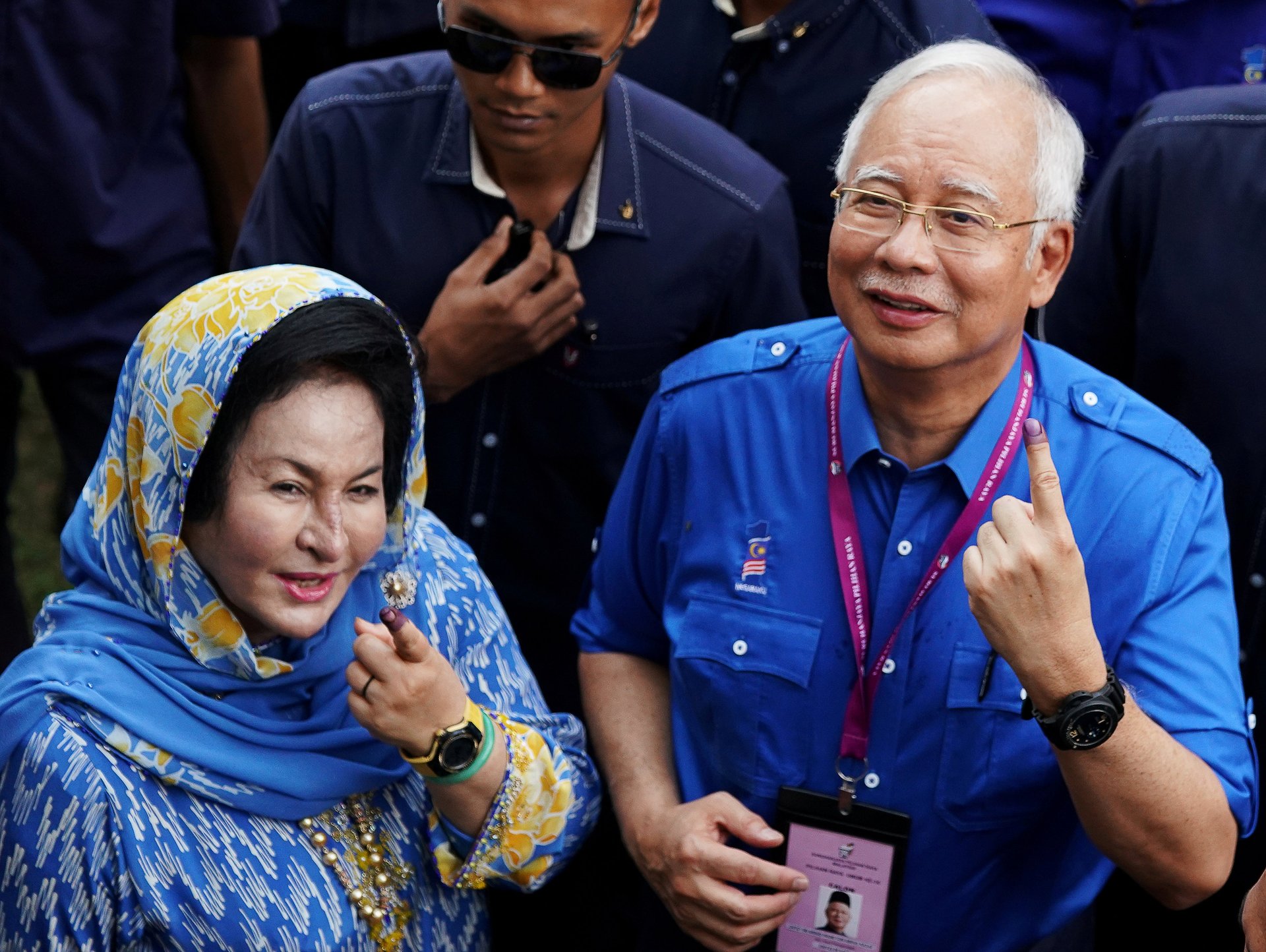There’s a good reason why the ousted Malaysian PM’s wife bought 284 luxury handbags
Malaysian police last week seized 284 boxes of luxury handbags from residences linked to the ousted Malaysian prime minister Najib Razak. The bags are believed to be owned by Najib’s wife, Rosmah Mansor, who is known for her predilection for a particular brand and style: the Hermès Birkin.


Malaysian police last week seized 284 boxes of luxury handbags from residences linked to the ousted Malaysian prime minister Najib Razak. The bags are believed to be owned by Najib’s wife, Rosmah Mansor, who is known for her predilection for a particular brand and style: the Hermès Birkin.
Rosmah is unpopular in Malaysia because her lavish lifestyle is allegedly funded by pilfered government money, courtesy of her husband. Those Birkin bags, which start at around $9,000, according to the designer bag enthusiast website Purseblog, can fetch astronomical prices on the secondary markets. The most expensive Birkin went for over $383,000 at auction last year.
But Rosmah’s stash could be more than a symbol of profligacy—it could turn out to be a savvy investment decision. A marketplace for luxury purses called Baghunter found that Birkins outperformed both gold and the S&P 500 stock index over the last 37 years. The Birkin was introduced in 1981.
After a watershed election that saw the ruling Barisan Nasional coalition lose power for the first time since its independence 61 years ago, Najib is out of office. In addition to the handbags, police have seized dozens of boxes of cash and jewellery from Najib and Rosmah’s residences in recent days. There are also lawsuits filed by the US Justice Department in 2016 to seize over $1 billion in assets from Rosmah’s son linked to funds stolen from a Malaysian state wealth fund that Najib chaired.
If Rosmah manages to hang on to her collection after all that, then she can rest assured: they’ll probably be worth quite a bit if they ever wind up on the auction block.
Correction: An earlier version of this article mistakenly showed the inflation-adjusted annualized return of the S&P 500 in the table (5.3%). The nominal annualized return of the S&P 500 was 8.7% between 1980 and 2017, which remains a good deal less than the return on Birkin bags over the same period.